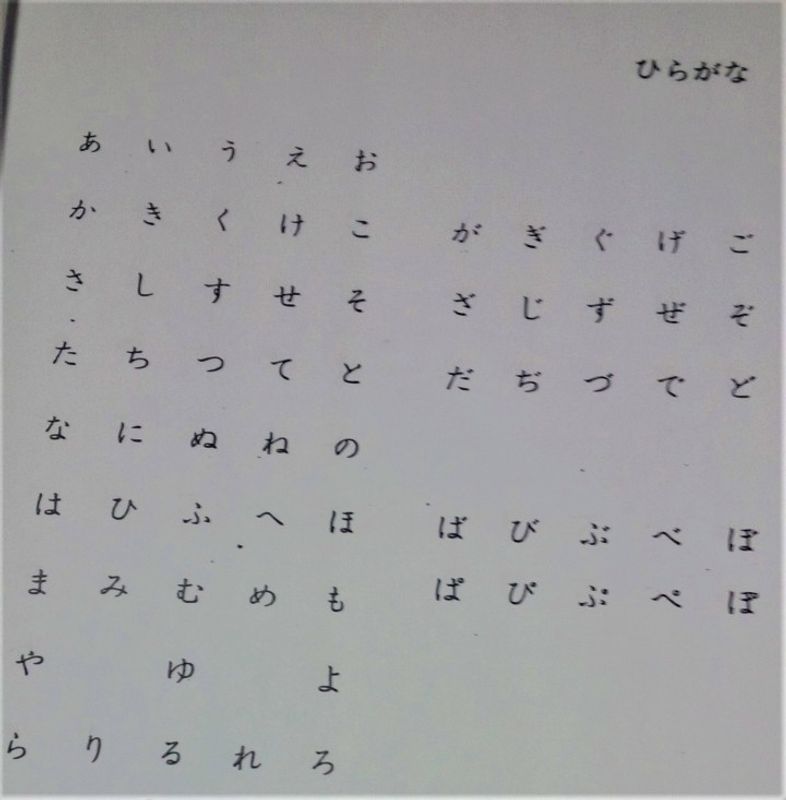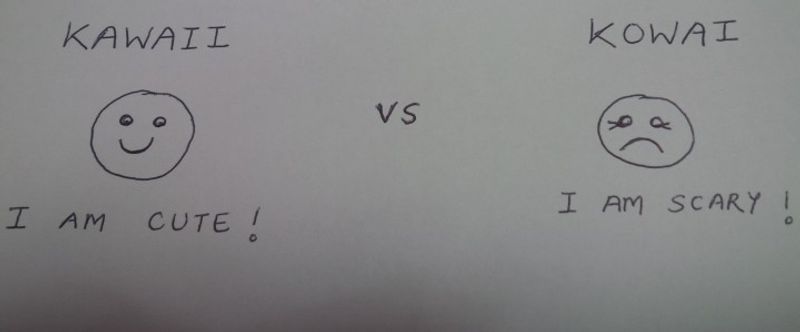Jan 7, 2017
Nihongo- Challenging, Ne?
When in Rome - Do as Roman's Do !! So when in Japan why not do as Japanese do ?? To do as Japanese do , first thing would be to speak Japanese. And this is where is a challenge !! I'm not sure if the challenge I come across with language in Japan would qualify as a challenge for my readers. Definitely not for those expats who have acquired a level of confidence in the Japanese language. However, me being a beginner (for ever) have faced enough challenges with language in Japan.

Let me share some of my observations and funny moments with an inappropriate use and understanding of the vocabulary. Sometimes it is just my tongue that does the wrong job and at other times it is just me making the moment either awkward or funny !!
1. Kawaii - Kowai : Even after living in Japan for couple of years now. I use Kawaii ( Cute) and Kowai ( Scary) interchangeably for some reason. In the beginning when someone told me- Anatawa Kawaii Desyou. ( You are cute) ; I would sometimes understand that as Anatawa Kowai Desyou ( You are Scary). I would question myself- Am I really? These words sound quite similar to me even now; May be I am the only one. Sometimes, in a morning walk with my husband- I'd say " Kowai" to compliment a neighbor's dog and my husband would stop me right there. Neighbor's face looked confused but he hesitantly smiled probably faking that he understood what I meant. After all who would want to hear that one's pet is a monster?

2. Okashi- Okashii : No specific example to share here but I totally use these terms " Okashi and Okashii" interchangeably even after knowing there meanings . The first one means snacks and the latter means weird. I face this challenge because my tongue does not allow me to pronounce them differently. I am not overly concerned here because people won't be much confused as these terms are used in different context or at least I haven't come across any such embarrassing moments using these terms.
3. Chotto : Though the word " Chotto" literally means " Little" in Japanese but I had to pay a price to figure out not always- but depends on when it is used. I worked for a University as a researcher in Niigata last winter. For my first meeting before I was appointed I took a train to the place. After I got off the train I wasn't sure how far was the university so asked a Japanese gentleman about the route. He explained me how to get there without indicating that it would be quite a walk. It was snowing outside but I started to walk thinking I'd get there soon. In the midst of my walk, I met another pedestrian and asked him how far is the place; He said with an unpleasant expression in his face- "Chotto Ne". I was like- Why would he make that face if it is just a little further? I only figured out that his " Chotto meant - A LOT -after walking half an hour in the snowy bone chilling day.

4. Naruhodo: I couldn't help share my personal experience of misunderstanding a term " Naruhodo"; and as I said it is personal in the sense that it was just me. It's not that the term is confusing or anything.I used to tutor English to a Japanese lady at my house. During our Japanese conversation she used a word - Naruhodo. I heard this word for the first time and the context of conversation was that we were talking about people in Japan. With her use of " Narohodo" somewhere in the middle of sentence; I related it to a person's name and I asked her back. Narohodo san wa dare desuka? ( Who is Mr. Naro Hodo ? ) Believe me her laughter filled the room!! Afterwards she explained me what it meant and I shared that with my husband in the evening. Such a fool I became !!!!!! Even now sometimes, my husband shares this joke with his Japanese friend and they laugh out loud !!!
Well, even though challenges are always there when it comes to learning a new language; my journey with Japanese language has been bitter-sweet. I sometimes invent my own ways to remember the words. For example- Not to confuse between Kuruma ( Car) and Kurumi( Walnut) - I borrow the learning style of my native language where " a" at the end mostly represents a male gender and "i" at the end is for female. Thus, for me a car is a " boy" and walnut is a "girl". It may be difficult for some one to make sense out of this example but I believe there are indigenous methods in every language that will help you learn any language. Sometimes I find my methods very handy.



5 Comments
DaveJpn
on Jan 8
Yep! Can relate to this very well. I keep getting 'karai' (hot/spicy) mixed up with 'kurai' (dark).
KamaT
on Jan 9
akarui and karui catch me out (among many others); 'light' (as in brightness) and 'light' (as in weight)
Babina
on Jan 10
@DaveJpn - I know there are probably many more that we come across everyday. Thanks for going through my write up !! Happy New Year !!
Babina
on Jan 10
@Tomuu - Thanks for adding your confusions to my list. Thanks a lot for reading my post. Happy New Year !
DaveJpn
on Jan 10
@Babina There probably are. Perhaps I'll try not to think about it! He! He! Happy New Year to you as well!!!